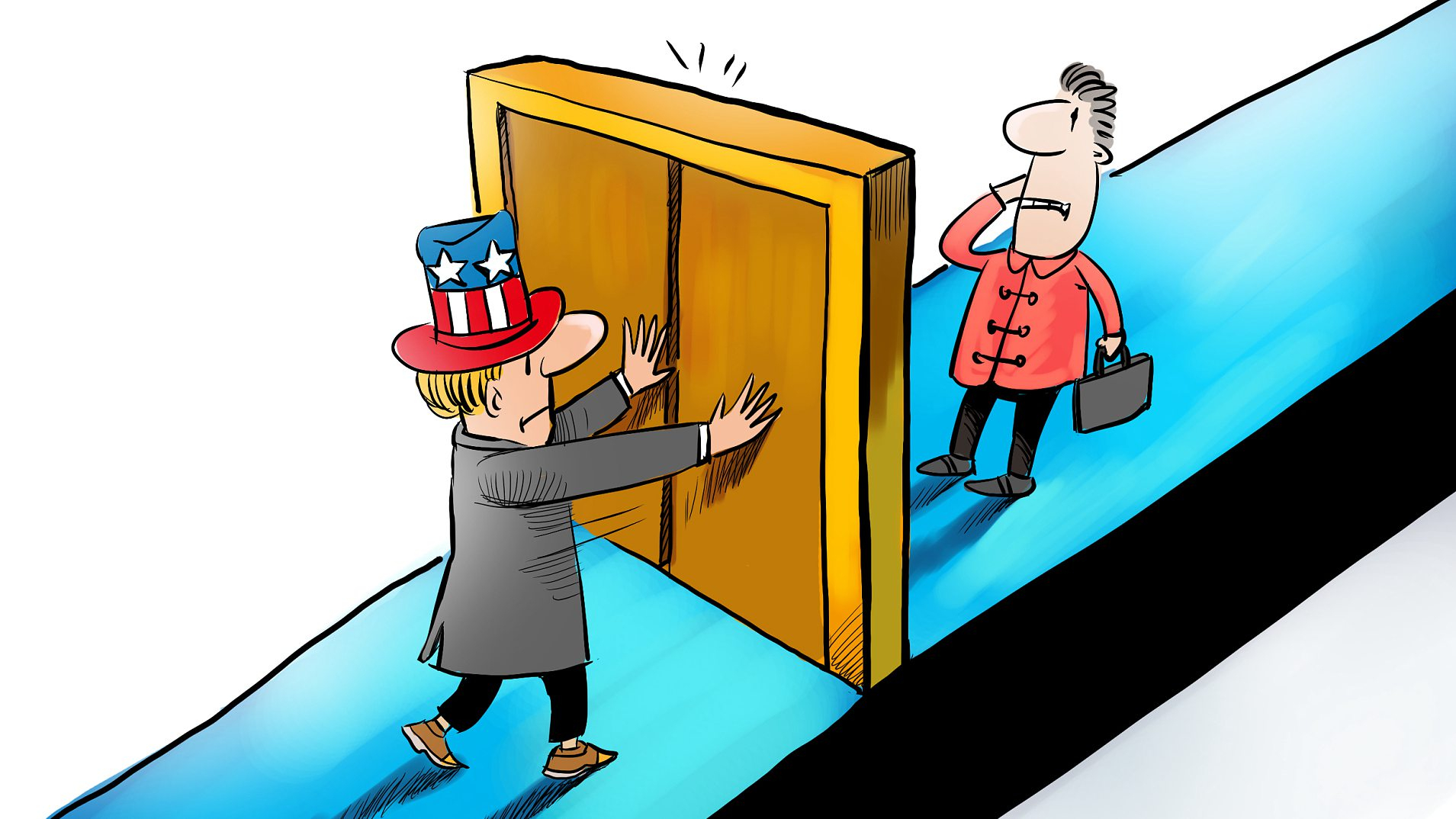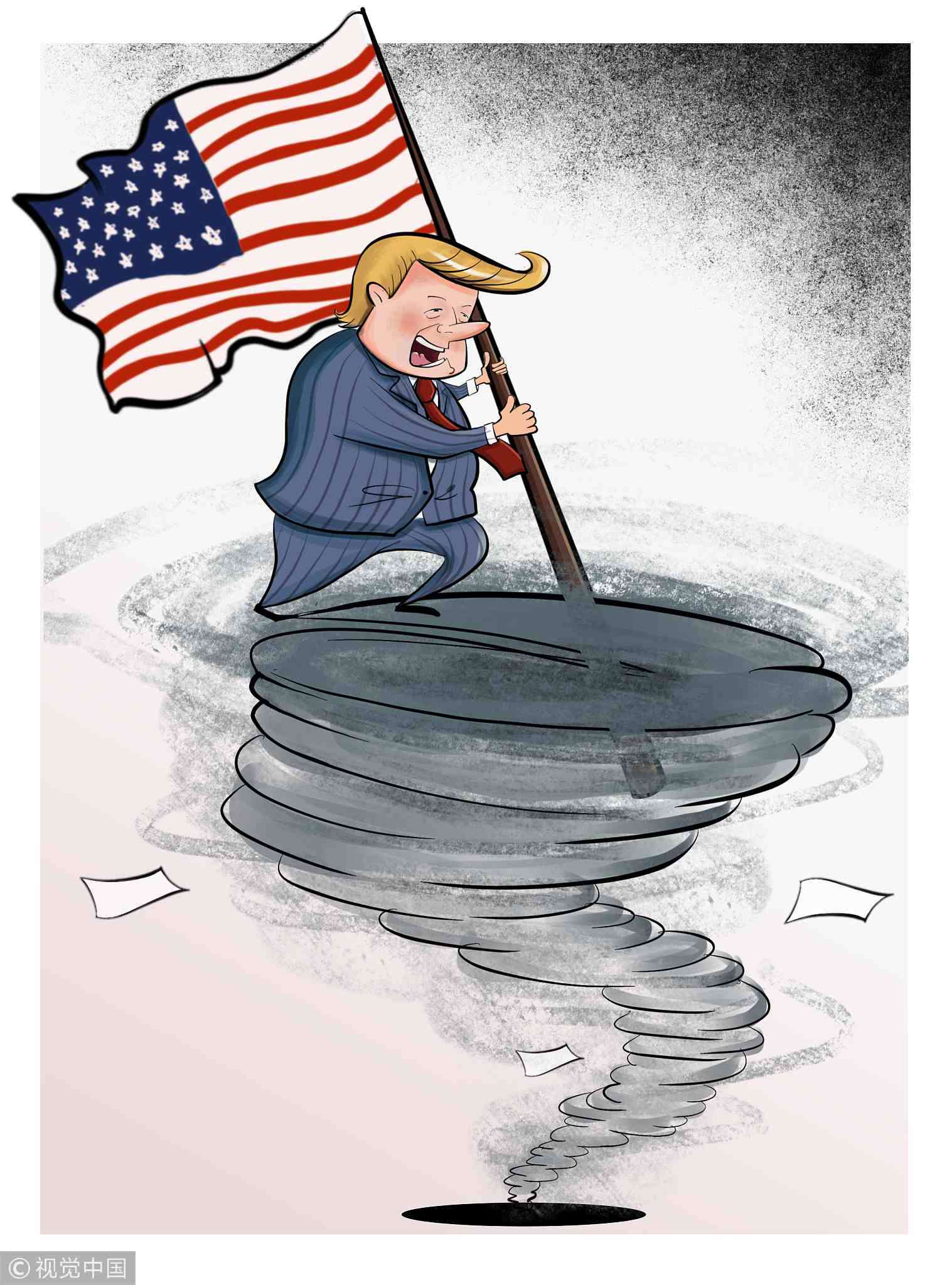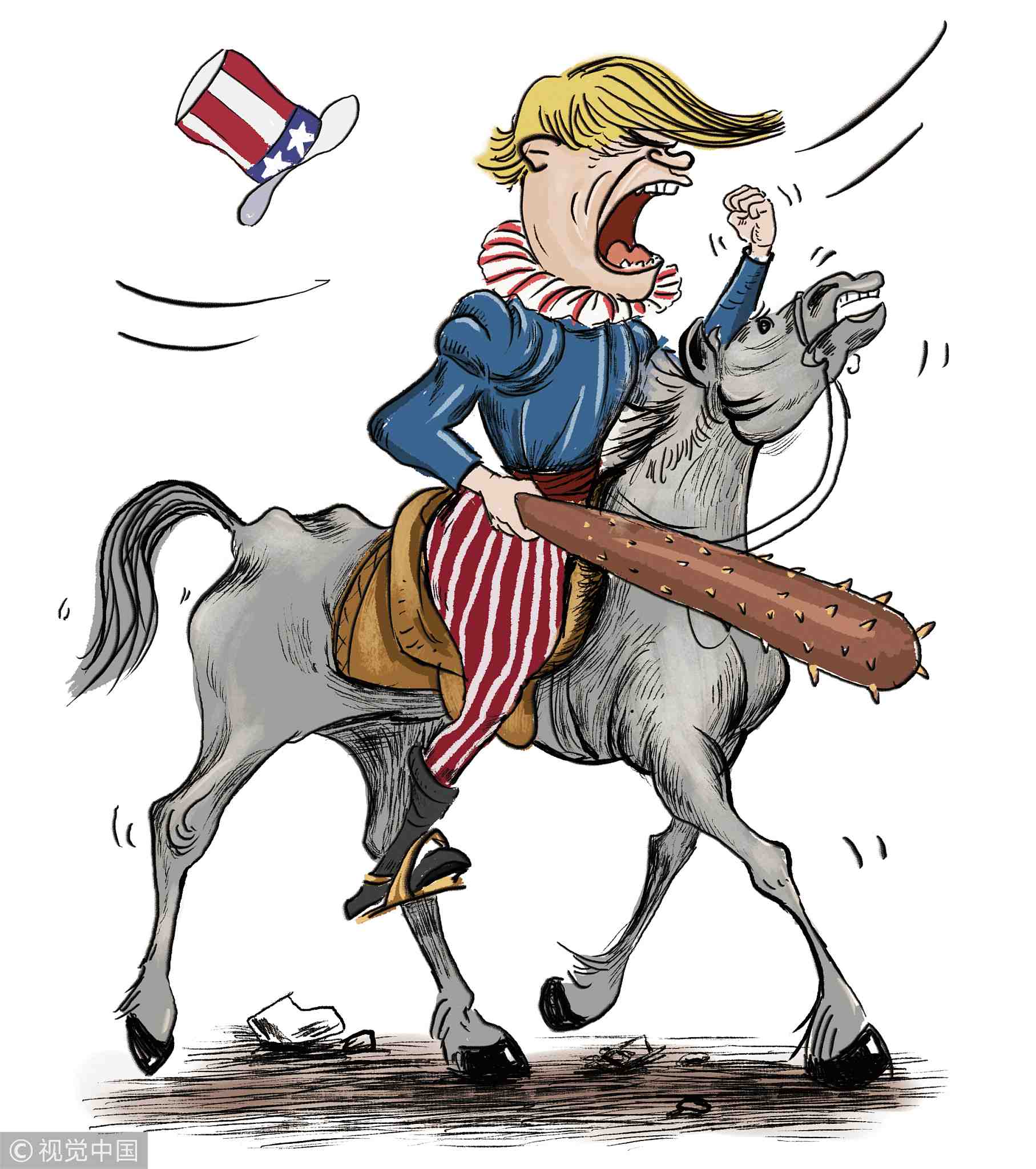
Opinions
12:44, 02-Aug-2018
Opinion: Can China, US return to the negotiating table?
Updated
11:53, 05-Aug-2018
Cheng Dawei

Editor’s note: Cheng Dawei is a professor at the School of Economics, Renmin University of China. The article reflects the author's opinion, and not necessarily the views of CGTN.
The big news I heard today is that the US Trade Representative's office has announced that it was asked to explore the possibility of imposing a 25-percent tariff – up from the original 10 percent – on 200 billion US dollars' worth of Chinese goods.
In response, a Chinese commerce ministry spokesperson said on Thursday that the US is playing a two-phase strategy towards China. On the one side, it threatens to raise tariffs on Chinese goods; on the other side, it is spreading the message that the US will resume talks with China.
This makes me believe that President Trump’s art of the deal is using leverage. In Trump’s 1987 book, "The Art of the Deal," he stressed the importance of leverage, saying "don’t make deals without it."
It is true, the application of trade tariffs to try and gain leverage is popular in trade negotiations, but it does not always work.
First, when you use leverage to push the deal, you have to let people believe there is a negotiating table waiting. You have to state your negotiation goal and what you really want to get.
When President Trump started the trade war, he was talking about the trade deficit issue. When the US Trade Representative issued the Section 301 report in March, he mentioned intellectual property and industrial policy.
This time, in his statement, Robert Lighthizer said the option for higher tariffs on Chinese goods was designed to pressure Beijing into economic reforms.

VCG Photo
VCG Photo
He said the increase in the possible rate of the additional duty is intended to provide the US with additional options to encourage China to change its harmful policies and behavior.
As I understand it, if China agrees to reform its policy, it is possible to return to the table, right? Actually, China has agreed to return to the table anytime without any leverage. It is in China’s own interests to deepen its reform and adopt the opening-up policy.
Second, fair interactions and dialogues must be established to achieve the negotiation goal. The negotiation, reform and development of new rules constitute the continuous formation of consensus, which is a continuous and uninterrupted process of demonstration, validation and correction.
When the US keeps raising the stakes, leaving no room for negotiation, how can we start the dialogue?
Third, what negotiation outcome does the Trump administration want? A zero-sum game? A zero-sum game is a situation in which a participant’s gain or loss of utility is exactly balanced by the utility losses or gains of the other participants.
The “America First” foreign policy proposed by the Trump administration constitutes a “you or me” situation.
The United States is the inventor of unfair trade, which in actuality is a concept built on self-interest. “Unfair” refers to inequality generated by foreign competition, from which a country must seek protection.

VCG Photo
VCG Photo
The domestic trade legislation of the United States is based on this concept. Section 301 authorizes the president to take all appropriate action, including retaliation, to remove any act, policy or practice of a foreign government that violates an international trade agreement.
However, this policy does not provide competitive countries or products fair market competition opportunities, but rather essentially restricts those that are competitive.
The “America First” foreign policy clearly exhibits the US government’s intention toward self-preservation. This policy is based on “you or me” values, where you are fair to me or I am fair to you, or you are unemployed or I am unemployed.
Trump originally proposed only a 10-percent tariff on 200 billion US dollars in Chinese goods. The new move would be a major escalation of the next planned round of the trade war. As a Chinese scholar, I am watching the game, but do not understand when President Trump will feel satisfied and get back to the negotiating table.
Using leverage is a power-based negotiation tactic. International trade creates interest. Aggressive unilateralism adopts the power of international trade relationships to allocate international trade benefits.
Economist Jagdish Bhagwati once asserted that the United States uses Section 301 to aggressively gain unilateral concessions from weaker trading partners. Aggressive unilateralism manifests as an abuse of power to extort trading benefits from weaker countries.
The extortion of trading benefits through the abuse of power remains evident in today’s US-China trade war, gradually stimulating a rise in protectionism.
I believe that equality is at the core of win-win values. Equilibrium is a product of interaction and mutual accommodation between various stakeholders.
However, achieving equilibrium is extremely time-consuming. The balancing of interests is a process that requires both sides to get back to the negotiating table now.

SITEMAP
Copyright © 2018 CGTN. Beijing ICP prepared NO.16065310-3
Copyright © 2018 CGTN. Beijing ICP prepared NO.16065310-3